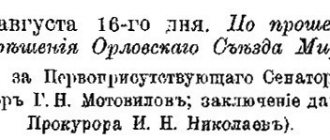Art.
117 of the Code of Criminal Procedure of the Russian Federation states that failure by the subjects of legal proceedings to comply with the established norms that are provided for by the Code of Russia, acts that violate the rules of the court session, give the judge the right to apply a coercive measure to these persons in the form of monetary penalties. Multi-channel free hotline Legal advice on criminal law. Every day from 9.00 to 21.00
Moscow and region: +7 (495) 662-44-36
St. Petersburg: +7 (812) 449-43-40
What is Article 117 of the Code of Criminal Procedure of the Russian Federation about?
Legal coercion, called monetary recovery, is used to achieve the following goals:
- ensuring the fulfillment by subjects of criminal proceedings of the duties assigned to them;
- forcing other persons involved in it to comply with the above rules during the trial.
In case of non-compliance with the requirements of the Code of Criminal Procedure, a material penalty is imposed on the violator of the rules. Its size is set individually. According to current legislation, it cannot exceed 2,500 rubles. The court has the right to grant a deferment for the execution of the decision for a period of 90 days.
Basic provisions
Not all subjects of criminal proceedings can be punished in accordance with Article 117 of the Code of Criminal Procedure of the Russian Federation. Prosecutors, prosecutors and defenders of the interests of the parties are not covered by it. Other measures of influence are provided for these subjects of the process.
A monetary penalty cannot be imposed in accordance with the article in question if the subject of the proceedings was not notified of his obligations. The latter must be announced during the trial or at the preliminary investigation stage, and the subject, in turn, must confirm that he understood their essence.
It is difficult to understand what Article 117 of the Code of Criminal Procedure of the Russian Federation means without practice and specific knowledge. For example, the provisions of the article do not apply to all participants in the trial, but specifically to persons present at the court hearing. Failure to comply with standards of conduct during a court hearing is an abstract concept. It can include any action that does not fit into the solemn atmosphere of the legal process, for example, shouting or moving around the hall. More often, punishment in accordance with the current norm is imposed for failure to comply with the orders of the presiding officer.
A financial penalty can only be imposed by a court. This is due to the third part of Article 35 of the Constitution of the Russian Federation, which states that no one can be deprived of their property without an appropriate court decision, but everyone has the right to point out the inappropriate behavior of a person present in the hall.
In what cases is the penalty applicable?
Monetary penalties are imposed on participants in the process in case of failure to fulfill not all procedural obligations. You can only be fined for actions or inactions that are directly referenced in the current Code of Criminal Procedure. For example, a penalty may be imposed on a witness and a victim if they ignored a call from an inquiry officer, investigator, court or prosecutor without good reason.
Responsibility for beatings and torture under Article 117 of the Criminal Code of the Russian Federation
An expert who refuses, without good reason, to carry out a study and give an opinion may be subject to penalties. Translators who perform their duties in bad faith may also be fined.
In some cases, criminal liability is provided for failure to comply with procedural obligations, for example, for refusal to testify or reporting knowingly false information. In such cases, the principle of “non bis in ideam” is applicable, which is literally interpreted as the inadmissibility of repeated punishment for the same thing.
Bail is collected from guarantors without investigation and determination of the degree of their guilt. The mere fact of violation of obligations by the suspect, accused or defendant is sufficient.
The effects of Article 117 of the Code of Criminal Procedure of the Russian Federation do not apply to duties that are not expressly specified in the code or, if the use of MPP is sufficient for their implementation, for example, a suspect, accused or defendant cannot be fined for resisting during an examination.
Article 117 of the Code of Criminal Procedure of the Russian Federation. Monetary recovery (current version)
1. A monetary penalty is a punitive measure of procedural coercion, which is a procedural sanction for committing a criminal procedural offense. Payment or forced collection of sums of money is a criminal procedural liability. This measure of procedural coercion should be distinguished from measures of administrative liability in the form of a fine for failure to comply with: an order of a judge or bailiff to stop actions that violate the rules established in court (Article 17.3 of the Code of Administrative Offenses of the Russian Federation); deliberate failure to comply with the legal requirements of the prosecutor, investigator, interrogator (Article 17.7 of the Code of Administrative Offenses of the Russian Federation). In judicial practice, the commission of a homogeneous criminal procedural violation excludes administrative liability under the above articles (Resolution of the Armed Forces of the Russian Federation of January 31, 2006 N 41-ad05-5).
2. The imposition of a monetary penalty is carried out in the presence of general conditions for the application of procedural coercive measures. See comment. to Art. 111.
3. The basis for imposing a monetary penalty is a criminal procedural offense, which includes the following elements: a) an action or inaction of a participant in the process that violates his obligation under the Code of Criminal Procedure, including the obligation to maintain order in the courtroom; b) the fault of the participant in the process. He must be aware of his duty and fail to fulfill it intentionally or through negligence. As the Constitutional Court of the Russian Federation emphasizes, “the presence of guilt is a generally recognized basis for bringing to legal liability in all branches of law” (Resolution of April 27, 2001 N 7-P; Determination of May 12, 2005 N 186-O). If there are good reasons for failure to fulfill the obligation, no monetary penalty is imposed. On the concept of good reasons, see comment. to Part 1 Art. 113; c) a participant in criminal proceedings must be the subject of a criminal procedural violation, i.e. have procedural tortiousness. He must be sane and reach a certain age. It appears that this age is 16 years old.
As a general rule, the elements of a criminal procedural offense must be established using criminal procedural evidence. However, one of the elements of a criminal procedural violation—guilt—is presumed. As the Constitutional Court of the Russian Federation noted in its Resolution No. 7-P of April 27, 2001, in relation to the sphere of criminal liability, the Constitution of the Russian Federation enshrines in Art. 49 presumption of innocence, i.e. places the burden of proving guilt in committing an unlawful act on the relevant government agencies. In the process of legal regulation of other types of legal liability (including criminal procedural (Author's note - K.K.), the legislator has the right to decide the issue of distributing the burden of proving guilt in a different way, taking into account the peculiarities of the relevant relations and their subjects. Presumption of guilt violator of criminal procedural norms is quite clearly demonstrated in relation to the guarantor, who is released from liability if he proves that he took all realistically possible measures to ensure the proper behavior of the accused. In other cases, if the accused violates the terms of the guarantee, a monetary penalty may be imposed on the guarantor. See Commentary to Article 103.
5. A special condition for imposing a monetary penalty is a certain status of a participant in the process. Comment. The article does not establish a list of participants in the process who may be subject to monetary penalties. It appears that a monetary penalty cannot be imposed on any persons specified in section II of the Code of Criminal Procedure “Participants in criminal proceedings”. Taking into account the systematic, historical interpretation of the norms of the Code of Criminal Procedure and the general rules for the application of coercive measures, a monetary penalty should not be imposed on: a) officials conducting criminal proceedings: court, judge, investigator, head of the investigation department, head of the body (unit) of inquiry, interrogator. They themselves are the subjects of the application of procedural coercive measures. For similar reasons, the prosecutor cannot be subject to a monetary penalty; b) the accused and the suspect. In the system of other measures of procedural coercion, monetary penalties are not listed among the measures applied to the accused and suspect (Article 111 of the Code of Criminal Procedure).
———————————
For justification of a different point of view, see: Commentary on the Code of Criminal Procedure of the Russian Federation / Under general. ed. V.V. Mozyakova. M., 2002. S. 267 - 268.
According to part two of Art. 111 of the Code of Criminal Procedure, a victim, witness, civil plaintiff, civil defendant, expert, specialist, translator and attesting witness can be subject to monetary penalties. The Code of Criminal Procedure directly or indirectly also provides for the imposition of a monetary penalty on: a) a personal guarantor for failure to ensure proper behavior of the accused or suspect (Part 4 of Article 103); b) a person who took under supervision and did not ensure the proper behavior of a minor accused or suspect (Part 3 of Article 105); c) a person present in the courtroom for violating order, disobeying the orders of the presiding judge or bailiff (Part 1 of Article 258); d) a juror for failure to appear in court without a good reason (Part 3 of Article 333 - see Determination of the Armed Forces of the Russian Federation of August 26, 2004 No. 1-011/03); e) a teacher or psychologist (Articles 191, 280, 425).
In judicial practice, the question arose as to whether a monetary penalty could be imposed on a lawyer. The Supreme Court of the Russian Federation in one of its decisions answers it negatively, citing the fact that the lawyer is not listed in Art. 111 Code of Criminal Procedure. In addition, the disciplinary liability of a lawyer and the adversarial principle exclude the possibility of imposing a monetary penalty on the defense lawyer.
———————————
See: Reznik G. Why can’t a monetary penalty be imposed on a defense lawyer? // Russian justice. 2003. N 8.
See: Determination of the Northern Fleet Military Court in the Kosolapov case // Review of judicial practice of the Supreme Court of the Russian Federation dated June 23, 2005.
6. In cases specifically provided for in Part 4 of Art. 103, part 3 art. 105 of the Code of Criminal Procedure, the amount of monetary penalty is set to 10,000 rubles.
Comment source:
Ed. A.V. Smirnova “COMMENTARY ON THE CRIMINAL PROCEDURE CODE OF THE RUSSIAN FEDERATION” (ARTICLE BY ARTICLE), 5th edition
SMIRNOV A.V., KALINOVSKY K.B., 2009
Comments on Article 117 of the Code of Criminal Procedure
Having studied in detail the comments to Article 117 of the Code of Criminal Procedure of the Russian Federation, one can understand that the amount of a monetary penalty in the amount of 2,500 rubles is not the maximum amount of the fine. There are cases in which the amount of penalties reaches 100 minimum wages.
The following participants in criminal proceedings may be subject to a monetary penalty of more than 2,500 rubles:
- Guarantors, that is, persons who have vouched for their ward in writing. The fine for such participants in criminal proceedings can reach 100 minimum wages. There is clearly an inexplicable contradiction with the provisions of the article in question regarding the amount of the fine. In addition, this norm of the Code of Criminal Procedure is problematic and controversial. The fact is that non-compliance with the procedural norms of the guarantor means their violation by the suspect or accused.
- Parents, guardians and officials working in child care institutions who vouch for the proper behavior of their ward. For such persons, a fine of up to one hundred minimum wages is also provided.
If in the first case the seizure of the collateral is carried out without proceedings, then in the second a number of circumstances are examined.
Fine as a type of criminal punishment according to Article 46 of the Criminal Code of the Russian Federation
If failure to comply with procedural rules occurs during the trial, the fine is imposed by the judge without delay.
If a violation is detected at the investigation stage, the official must record this fact and submit it to the court for consideration.
Article 117 of the Code of Criminal Procedure of the Russian Federation
Monetary collection is a method of legal coercion aimed at:
- Ensure that the objects of legal proceedings fulfill the procedural duties assigned to them.
- Observe the appropriate action at the court hearing by the participants in this process and other persons.
If these requirements are not met, the relevant authorities will impose a material penalty in the amount determined individually, but not more than the maximum amount of 2,500 rubles, in accordance with the current Code under Art. 118.
The judicial authority has the right to postpone the collection and grant an installment plan for the execution of the collection order for a period of 90 days.
Prosecutors, prosecutors, or defense attorneys are not subject to monetary penalties by law. They are subject to other punishment for disobeying the judge’s order.
According to the established procedures, a decision is made on the issue of turning over the property security to the state in the cases provided for in the article of the Code.
Subjects of ship proceedings must know their responsibilities in order not to be subject to this punishment.
According to the law, it is left to the judge alone to impose a monetary penalty on subjects or other persons for offenses committed by them in the pre-trial investigation.
Arbitrage practice
Let's consider the most common cases of judicial practice:
- On May 23, 2016, the court issued a decision to terminate the administrative case against citizen M., who did not appear on a summons sent to her place of residence for questioning by the investigator. The basis for dismissal of the case was a valid reason for failure to appear. As citizen M. explained, she was a suspect in a theft case and was summoned by an investigator from another structural unit of law enforcement agencies, which fully justifies her failure to appear in the first case.
- On September 11, 2011, citizen N. did not appear at the trial in which he took part as a juror, because of this the hearing had to be postponed. According to Article 117 of the Code of Criminal Procedure, he should have been fined no more than 2,500 rubles. No such decision was made, since citizen N. was hospitalized in the morning of the same day, which is a valid reason for failure to appear.
Cases of application of Article 117 of the Code of Criminal Procedure of the Russian Federation are common and characteristic of approximately every third criminal process.
What decisions are most often made under Article 117 of the Code of Criminal Procedure of the Russian Federation?
Legal practice indicates the following facts:
- a monetary penalty in criminal proceedings in accordance with the provisions of Article 117 of the Code of Criminal Procedure of the Russian Federation is most often imposed during the trial, due to inappropriate behavior of the participants in the process, including those who are not its subjects;
- representatives of law enforcement agencies, including the prosecutor's office, do not indicate all the facts of violation by the subjects of the process of their duties and, accordingly, do not report them to the court;
- Most of the decisions made to collect a fine in accordance with Article 117 of the Code of Criminal Procedure of the Russian Federation due to failure to appear when summoned to the police, prosecutor's office or court are disputed due to the presence of a valid reason.
Penalties applied to guarantors and representatives of minors who vouch for them are not a widespread practice.







